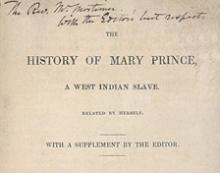Law
Cahiers from Rural Districts: Attack on Seigneurial Dues
The petitions from rural communities decried the abuse of seigneurial dues that peasants owed to lords in exchange for which they were supposed to receive protection and supervision.

Internet Ancient History Sourcebook
This site was designed to provide classroom teachers with an extensive, well-organized collection of ancient Mediterranean literary texts and, to a lesser extent, art and archaeological sources.Abolition of Nobility
The major principle underlying the 4 August decree found legislative expression in the decree of 19 June 1790.
Short Teaching Module: Gender and Race in Colonial Latin America
When I teach a survey of the colonial history of Latin America, I often focus on the era’s cultural history, and specifically on the issue of hegemony and resistance.

Short Teaching Module: Slavery, Labor, and Gender
In this case study, developed for a lower-division lecture class on “World History 1400-1870,” students explore gender though a primary source the personal account, “The History of Mary Prince, A West Indian Slave Related by Herself.” This first-person account was written by British abolitionists

Excerpt from The History of Mary Prince
“The History of Mary Prince, A West Indian Slave Related by Herself” is first-person account was written by British abolitionists and disseminated through the London Society for the Abolition of Slavery in 1831.
Decisions of the Superior Courts of New South Wales, 1788-1899
Legal records are a key resource in gaining access to the voices of the non-elite, providing a rich repository of the details of life in the period. The subject index is particularly useful in drawing themes together for teaching.Letters of Milada Horáková
In this collection of letters, written by Milada Horáková before her execution in 1950 by the Communist Party in Czechoslovakia, Horáková writes last wishes and notes to her family.